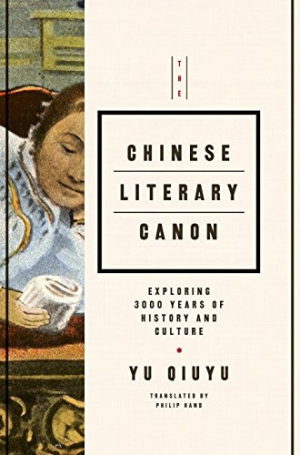The Chinese Literary Canon
Exploring 3000 Years of History and Culture
Not a mere anthology but a learned, critical exploration of China’s great literary works and the history and culture that surround them.
Celebrated scholar and writer Yu Qiuyu provides a personal touch as he illuminates the history of Chinese literature in The Chinese Literary Canon.
The title of Yu Qiuyu’s The Chinese Literary Canon might give the impression of a Chinese-centric Norton Anthology, a compilation of the most important Chinese works of literature. Qiuyu’s book is not that, however—it’s a book of literary criticism in the style that Qiuyu has made famous: personal, honest, and often blunt. It’s the book’s subtitle that gives the real clue to its content, as Qiuyu’s writing leads the initiate on a trail exploring not just famous literary works but also the history and culture that surrounded them.
For those who love lists and rankings, Qiuyu is not shy about naming his favorites, or revealing personal experiences that have made certain parts of the canon special to him. As he tells readers about why one work or author deserves greater praise than another, Qiuyu links modern readers with the ancient texts that, in his opinion, best speak throughout the ages.
Qiuyu has developed an honored reputation as a representative and popularizer of Chinese culture, lecturing at Harvard, Yale, and other institutions. In The Chinese Literary Canon, Qiuyu’s words are translated by Philip Hand, winner of the 2012 Harvill Secker Young Translators Prize. Hand maintains Qiuyu’s unique style but never loses Qiuyu’s academic authority, both illustrated in this example discussing Chinese poetry’s inward focus:
This self-centeredness became both poetry’s greatness and its weakness. Great because the whole world became the self, a landscape across which the poet capered at will. Weak because even the breeze became an enemy, the turning of seasons a cause for fear. The falling of a flower became unbearable, birdsong and wilting grass a torment.
Qiuyu combines the sincerity and conversational nature of a peer with the encyclopedic knowledge and accumulated wisdom of a scholar.
Reviewed by
Peter Dabbene
Disclosure: This article is not an endorsement, but a review. The publisher of this book provided free copies of the book to have their book reviewed by a professional reviewer. No fee was paid by the publisher for this review. Foreword Reviews only recommends books that we love. Foreword Magazine, Inc. is disclosing this in accordance with the Federal Trade Commission’s 16 CFR, Part 255.

